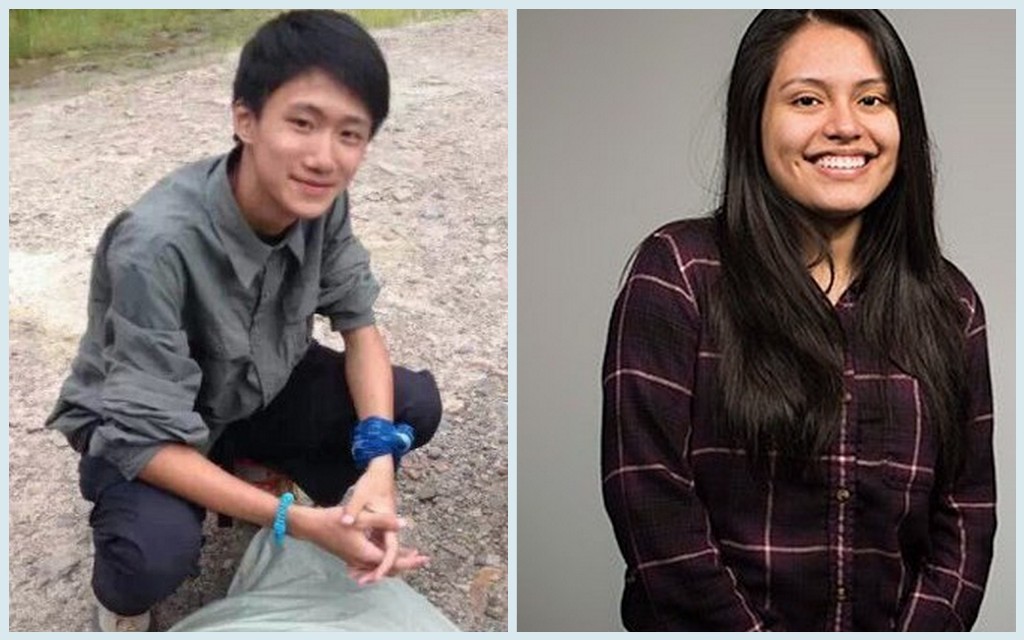Zhang and Tenesaca win CRA outstanding researcher award
Boyu Zhang (finalist) and Ashely Tenesaca (honorable mention) are recognized by the CRA outstanding undergraduate researcher award.
Boyu Zhang proposed a spatio-temporal representation for Google Search histories and self-esteem scores. He developed a novel probabilistic graphical model with Bayesian inference methods to identify users with prior suicide ideations in a group of three. In follow-up work, he first helped build cloud applications to collect individual-level digital footprints from popular Google platforms, including Google Search, YouTube, and Google Maps. He also helped deploy clinically validated mental health surveys over HIPAA-compliant systems. He then developed several explicable features that capture temporal and semantic signals in personal Google Search and YouTube history logs, including a unique representation of periods of activity and inactivity based on self-exciting point processes. In later experiments, Boyu tailored a non-parametric model and, with the above features, obtained superior performances in predicting users’ anxiety levels. In his recent, also co-first authored paper at JMIR, Boyu extended the above framework during COVID-19. He rigorously evaluated the statistical relationship between deteriorating mental health profiles (anxiety and depressive disorders) and an extensive range of students’ online behaviors during the pandemic, proposing novel features to quantify quotidian online patterns via entropies and KL-divergence.
Ashely Tenesaca, a McNair fellow, worked on two major projects resulting in two publications (one of them as a first author). She contributed to the study design, pre-data collection, data annotation, and result interpretation. The major finding from the project was the following: for your creative ideas to stand out, it matters not only who is inspiring you, but also who is inspiring your *peers* in temporal social networks. The findings have significant implications in how social media recommends who to follow and how to form a team towards more creative output. The work has resulted in a journal publication at the Journal of Royal Society Interface with Ashely as a contributing author.
In a follow-up project, Ashely, as part of a team, developed a proof-of-concept system that uses projection-based AR technology to provide real-time and context-aware ASL visualization on a tabletop environment. She took a leadership role during the summer, including organizing reading groups, overseeing the system implementation, developing the first user study protocol, and presenting the project and demonstration to collaborators from the Brain and Cognitive Science, medical center, and Rochester School of Deaf. Ashely wrote a first-author research paper – “Augmenting Communication Between Hearing Parents and Deaf Children” – accepted in the Mixed Reality and Accessibility workshop at the International Symposium on Mixed and Augmented Reality (ISMAR) conference.
Details: https://cra.org/2021-outstanding-undergraduate-researcher-award-recipients/

